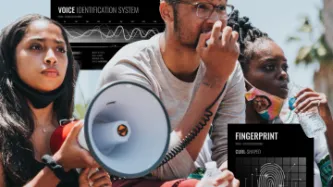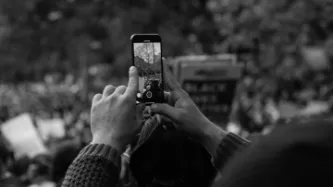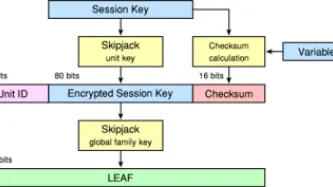Search
Content type: Long Read
The fourth edition of PI’s Guide to International Law and Surveillance provides the most hard-hitting past and recent results on international human rights law that reinforce the core human rights principles and standards on surveillance. We hope that it will continue helping researchers, activists, journalists, policymakers, and anyone else working on these issues.The new edition includes, among others, entries on (extra)territorial jurisdiction in surveillance, surveillance of public…
Content type: Advocacy
Dejusticia, Fundación Karisma, and Privacy International submitted a joint stakeholder report on Colombia to the 44th session of the Universal Periodic Review at the UN Human Rights Council.Our submission raised concerns regarding the protection of the rights to freedom of expression and opinion, to privacy, and to personal data protection; the shutdown of civil society spaces; protection of the right to protest; and protection of the rights of the Venezuelan migrant and refugee population.…
Content type: Report
PI has been fighting against police using intrusive & disproportionate surveillance technologies at protests around the world for years. Unregulated surveillance and indiscriminate intrusions on our privacy have a chilling effect on the right to freedom of assembly.
We've fought to uncover the types of technologies that police secretly deploy at protests, and we have detailed how protesters around the world can try to protect their intimate and sensitive data from being captured by the…
Content type: Report
End-to-end encryption (E2EE) contributes significantly to security and privacy. For that reason, PI has long been in favour of the deployment of robust E2EE.Encryption is a way of securing digital communications using mathematical algorithms that protect the content of a communication while in transmission or storage. It has become essential to our modern digital communications, from personal emails to bank transactions. End-to-end encryption is a form of encryption that is even more private.…
Content type: Explainer
Following sustained reporting by researchers, journalists and activists around the world, including recent disclosures exposed by the PegasusProject, the surveillance industry is facing scrutiny like never before.
In the latest move, eighteen U.S. lawmakers have today demanded that the U.S. government imposes sanctions on four non-US surveillance companies for, as they mention in their letter, facilitating “disappearance, torture and murder of human rights activists and journalists”.
The move…
Content type: Long Read
On 25 May 2021, the European Court of Human Rights issued its judgment in Big Brother Watch & Others v. the UK. Below, we answer some of the main questions relating to the case.
After our initial reaction, below we answer some of the main questions relating to the case.
NOTE: This post reflects our initial reaction to the judgment and may be updated.
What’s the ruling all about?
In a nutshell, one of the world’s most important courts, the Grand Chamber of the European Court of Human…
Content type: Press release
The Grand Chamber of the European Court of Human Rights has today ruled that UK mass surveillance laws violate the rights to privacy and freedom of expression.It found that:The UK’s historical bulk interception regime violated the right to privacy protected by Article 8 of the European Convention on Human Rights and freedom of expression, protected by Article 10. Particularly it found that:the absence of independent authorisation,the failure to include the categories of selectors in the…
Content type: Video
On 6 February 2021, the Constitutional Court of South Africa in a historic judgment declared unconstitutional years of secret and unchecked surveillance by South African authorities against millions of people - irrespective of whether they reside in South Africa.
The Court powerfully placed the judgment in historical context:
The constitutionally protected right to privacy seeks to be one of the guarantees that South Africa will not again act like the police state that it was under apartheid…
Content type: News & Analysis
IMSI catchers (or stingrays as they are known in the US) are one of the surveillance technologies that has come to the forefront again in the protests against police brutality and systemic racism that have been sparked by the murder of George Floyd on 25 May 2020.
An International Mobile Subscriber Identity catcher – in short an “IMSI catcher” – is an intrusive piece of technology that can be used to locate and track all mobile phones that are switched on in a certain area. It does so by…
Content type: News & Analysis
Traduction réalisée par Nadine Blum.
Le 29 mai, le Congrès nigérien a voté une loi permettant au gouvernement d’intercepter largement certaines communications électroniques. La loi rend légale l’interception de communications, autorisée par le gouvernement, sans protections appropriées ni mécanismes de contrôle.
La loi a été adoptée avec 104 votes pour – le Parlement nigérien compte 171 membres – et sans la participation de l’opposition qui a boycotté la loi. L’opposition a affirmé…
Content type: News & Analysis
On 29 May, Niger’s Congress voted on a law allowing for broad interception powers of certain electronic communications by the government. The bill makes it lawful for the government to approve the interception of communications without appropriate safeguards or oversight mechanisms.
The law passed with 104 votes – the Nigerien parliament has 171 members – without the participation of the opposition that boycotted the law. The opposition claimed that
the law will allow those, for…
Content type: News & Analysis
In mid-2019, MI5 admitted, during a case brought by Liberty, that personal data was being held in “ungoverned spaces”. Much about these ‘ungoverned spaces’, and how they would effectively be “governed” in the future, remained unclear. At the moment, they are understood to be a ‘technical environment’ where personal data of unknown numbers of individuals was being ‘handled’. The use of ‘technical environment’ suggests something more than simply a compilation of a few datasets or databases.
The…
Content type: News & Analysis
Today Advocate General (AG) Campos Sánchez-Bordona of the Court of Justice of the European Union (CJEU), issued his opinions (C-623/17, C-511/18 and C-512/18 and C-520/18) on how he believes the Court should rule on vital questions relating to the conditions under which security and intelligence agencies in the UK, France and Belgium could have access to communications data retained by telecommunications providers.
The AG addressed two major questions:
(1) When states seek to impose…
Content type: Impact Case Study
PI and our global partners have been at the forefront of challenging communications data retention for over a decade.
What is the problem
Communications data, also known as metadata, tells a story about your digital activity and answers the who, when, what, and how of a specific communication. While communications data doesn't include the contents of a message, all of the other information about the message can be very revealing about people, their habits, thoughts, health and personal…
Content type: Impact Case Study
What happenedThe Clinton Administration kicked off the cypto-wars in 1993 with the Clipper Chip. The continued application of export controls restrained the deployment of strong cryptography in products at a key moment of internet history: as it began to be embedded in software and networking. What we didIn the early phases of the crypto-wars we placed pressure on global industry to implement encryption in their products. We ran campaigns and events across the world on the need for strong…
Content type: Impact Case Study
What is the problem
For over two decades we have been documenting an alarming use and spread of surveillance. It is no longer just the wars on terror or drugs or migration that is driving this trend. The management of health crises and distribution of welfare regularly are among others being used to justify this turn to increasingly invasive forms of surveillance. From country to country we see the same ideas and the same profiteers expanding their reach.
When we first released our report on…
Content type: News & Analysis
On a hot day in Nairobi, our researcher is speaking to an officer of Kenya’s National Intelligence Service (NIS). The afternoon is wearing on and the conversation has turned to the presidential elections, taking place in August this year. He has just finished describing the NIS’ highly secret surveillance powers and the disturbing ways in which these powers are deployed.
“It is what you might call ‘acceptable deaths,’” he states about the misuse of communications surveillance powers. “People…















